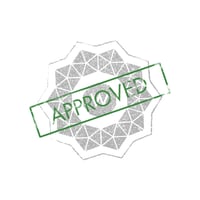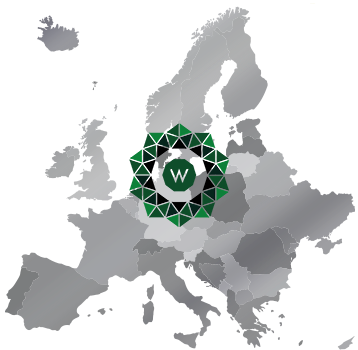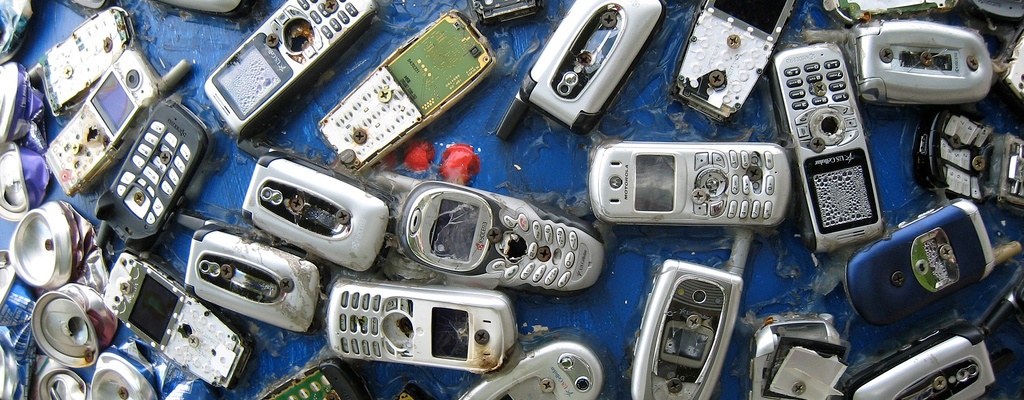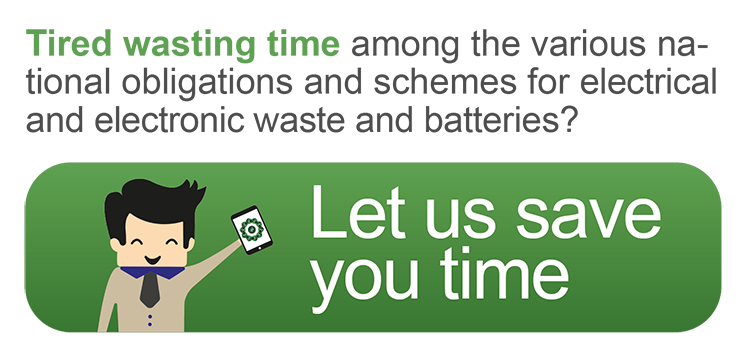1. Services and obligations of a Producer Responsibility Organization
A Peroducer Responsibility Organization (PRO) is an organisation whose clients (members) all work in the business of selling electrical and electronic equipment (EEE). The PRO works to create full compliance of all its members with their individual WEEE requirements by:
- Keeping records of all units and weights placed on the market by each member
- Reporting such data to the national authorities
- Collecting fees in relation to any fee owing to the national government or national registration proceedings,
- Financing take back and recycling operations to reach quantities and weights targets standing from the quantities and weights declared by its members.
- Reporting operations and recycling achievements to members and authorities.
Consequently, PRO organize administrative proceedings, take back and recycling operations in order to fulfil the obligations of their clients.
The Producer and Compliance Scheme (PRO) offer such services to any locally registered company or authorized representative acting on behalf of a company holding obligations: manufacturer, importer, resellers under their own trademark and distant sellers (e-commerce).
PRO are usually non for profit in order to ensure producers and authorities that they provide reliable services without conflicts of interests.
2. Economic Benefit of joining a PRO
 The producer responsibility organization usually offers producers a standardized service level to apply established national and EU practices relating to the proper and efficient collection and recycling of WEEE products.
The producer responsibility organization usually offers producers a standardized service level to apply established national and EU practices relating to the proper and efficient collection and recycling of WEEE products.
Joining a PRO means producers of EEE products do not have to navigate the regulation processes by themselves and benefit from economies of scale in terms of operations and recycling costs.
All treated equally together through the PRO, producers of EEE components and products can avail of discount buying a direct contract deal with recyclers and by effect they decrease overall costs relating to the responsibility of regulation compliance.
3. Expertise regarding quality control purchasing
 PRO act to manage on behalf of producers the overall recycling organization. Consumers are also a part of this overall scheme as they are required to discard their end-of-life products only within proper collection facilities. Retailers also participate in the collection of WEEE products. Logistics and recycling companies compete by providing environmentally responsible collection and processing of all WEEE products to producer compliance schemes.
PRO act to manage on behalf of producers the overall recycling organization. Consumers are also a part of this overall scheme as they are required to discard their end-of-life products only within proper collection facilities. Retailers also participate in the collection of WEEE products. Logistics and recycling companies compete by providing environmentally responsible collection and processing of all WEEE products to producer compliance schemes.
Indeed, PRO do operate take back and recycling programs; producers can also contribute to meet collection take back and recycling targets with their own WEEE, or with their clients’s WEEE. PRO do audit their tiers in order to guarantee the quality of operations on behalf of their clients.
4. Foundation of Producer Responsibility Organization
National governments act to create the legal and local framework of the WEEE directive requirements to EEE producers and provide them with the information and resources to create PCS among themselves.
 Notably, producers and industry federations are usually the major founders and shareholders of PRO. There can be several competing PRO on the same market, as it is the case in most EU countries.
Notably, producers and industry federations are usually the major founders and shareholders of PRO. There can be several competing PRO on the same market, as it is the case in most EU countries.
After the PRO is formed it is their responsiblity to provide understanding of the regulations to any new producers and the wider public and particularly to consumers of EEE products. This is done through placing signs in collection areas where EEE products are sold or discarded and often including this requirement in writing within the product specifications, either on the package or in the enclosed instructions.
The application of the WEEE directive regulations across all European Union countries means that there is a level playing field between producers of EEE products and allows for fairness in the marketplace.
Placing the responsiblity in the hands of each producer has been found to be a consistent way of updating the register to show how many products were introduced to the market and taken off across the EU and allows for cohesiveness between EU nations in their common marketplace. Of course, it lacks of harmonisation among Member States since for example National Registries do not require the same format of declarations, and since Compliance fees are not harmonised.
While there is no requirement for a producer to involve themselves in a producer compliance scheme it is clear that by doing so producers of EEE products are able to avail of the best prices for complying by joining an existing group. Where there is no local PRO one can be formed with available direction from the government or on the EU level.
Romain Letenneur




